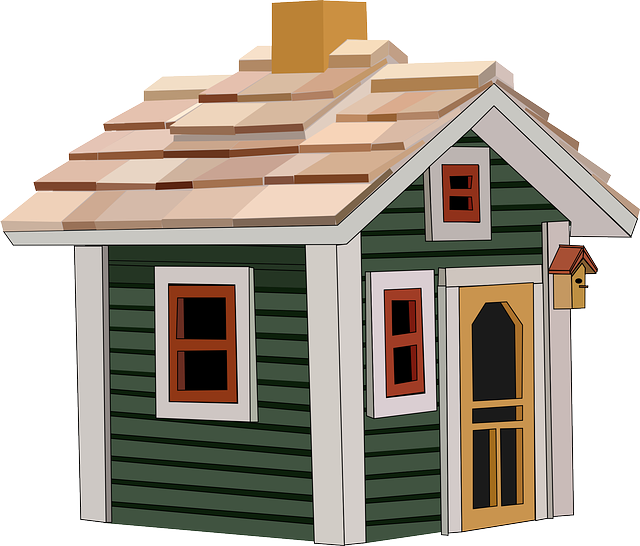This guide offers an extensive overview of flat roof installation and repair processes for both commercial and residential structures. It emphasizes the selection of suitable roofing materials like EPDM, TPO, bitumen, or PVC, highlighting their importance in achieving durable, waterproof roofs. The text outlines critical steps, from surface preparation to flashing, membrane application, and ventilation, ensuring longevity. Regular maintenance practices are crucial for these cost-effective solutions, with specialists providing expert advice on materials and repairs to meet various challenges. Whether for commercial or residential properties, proper care ensures optimal performance and protection against leaks.
Seamless installation and maintenance of flat roofs are crucial for any property owner. This comprehensive guide delves into the intricacies of both commercial and residential flat roof installations, offering a detailed understanding of the process and materials involved. We explore how to choose the right flat roofing materials for durability and waterproofing, providing expert tips on flat roof repairs and regular maintenance practices. Discover the secrets to ensuring your flat roof stands the test of time with these essential insights from flat roof specialists.
- Understanding Flat Roof Installation: A Comprehensive Guide
- Choosing the Right Materials for Your Flat Roof
- The Process of Commercial and Residential Flat Roof Repairs
- Maintaining Your Flat Roof: Tips and Services to Consider
Understanding Flat Roof Installation: A Comprehensive Guide
Understanding Flat Roof Installation: A Comprehensive Guide
When it comes to flat roof installation or repair, whether for commercial or residential properties, choosing the right materials and specialists is paramount. Commercial flat roofing often requires robust, long-lasting solutions like EPDM (Ethylene Propylene Diene Monomer) or TPO (Thermoplastic Olifin Rubber) membranes, which offer superior durability and waterproof protection. Residential flat roofs, on the other hand, might opt for bitumen or PVC systems, known for their ease of installation and cost-effectiveness.
The process involves meticulous preparation: starting with a clean, level surface, proper flashing around penetrations like vents and pipes, and ensuring adequate ventilation to prevent heat build-up. Flat roof specialists then apply the chosen membrane, often in overlapping layers, securing it with specialized adhesive or mechanical fasteners. Regular maintenance, including regular inspection and timely repair of any damage, ensures the longevity of these durable flat roofs, providing years of leak-free protection for both commercial and residential structures.
Choosing the Right Materials for Your Flat Roof
When it comes to a seamless installation or repair of a flat roof, selecting the appropriate materials is a key step. For both commercial and residential properties, understanding your options in flat roofing materials is essential for long-lasting results. Look for durable and waterproof solutions that can withstand the elements and provide years of reliable protection. Flat roof specialists often recommend materials like high-quality membranes or single-ply systems, known for their strength and efficiency in creating a protective barrier against leaks and damage.
Choosing the right flat roofing materials ensures optimal performance and simplifies future maintenance tasks. Regular flat roof services include inspections, repairs, and routine upkeep to keep your roof in top condition. Waterproof flat roofs are particularly crucial as they protect valuable assets below, preventing moisture intrusion that could lead to costly interior damages. With the variety of flat roofing options available, homeowners and business owners can find tailored solutions to meet their specific needs, ensuring a solid investment in their property’s protection.
The Process of Commercial and Residential Flat Roof Repairs
The process of repairing a flat roof varies slightly depending on whether it’s a commercial or residential property. Both types share common goals, however: to restore functionality, enhance durability, and ensure a waterproof barrier. For commercial flat roofing, repairs often involve addressing larger areas affected by leaks, using specialized equipment and techniques tailored for heavy-load structures. This may include replacing entire sections of deck or installing new flat roofing materials like EPDM or TPO membranes, known for their superior strength and waterproofing properties.
In contrast, residential flat roofs typically demand more precise, detail-oriented work. Leaks in these settings often originate from specific points like flashing around chimneys or vents. Flat roof specialists will carefully assess the damage, effect repairs with meticulous craftsmanship, and recommend suitable flat roof solutions to prevent future issues. Regular flat roof maintenance is crucial for both types of roofs, involving inspections, cleaning, and minor repairs to ensure optimal performance and longevity.
Maintaining Your Flat Roof: Tips and Services to Consider
Maintaining a flat roof is an essential aspect of ensuring its longevity and performance. Regular inspection is key; look for any signs of damage, leaks, or loose materials, especially after severe weather events. Flat roof repair should not be deferred, as even small issues can escalate into major problems. Prompt action on repairs ensures the integrity of your waterproof flat roof system.
When it comes to maintenance, consider hiring flat roof specialists who offer comprehensive flat roofing services. These professionals can advise on the best flat roofing materials suited to your structure and climate. They provide solutions for various challenges, from replacing missing or damaged shingles to re-sealing and maintaining drains. Regular flat roof maintenance not only extends its lifespan but also guarantees optimal performance, ensuring your residential or commercial flat roofs remain durable and reliable.
Seamless installation and proper maintenance are key to ensuring the longevity and durability of both commercial and residential flat roofs. By understanding the process, choosing the right materials, and employing expert flat roof specialists, homeowners and businesses alike can enjoy the benefits of a waterproof, robust, and low-maintenance flat roofing solution. Regular flat roof services and timely repairs will safeguard against potential issues, preserving the structural integrity and aesthetic appeal of these versatile rooftops for years to come.
